Projects
Full power management installation on new Lagoon 421 (2019)
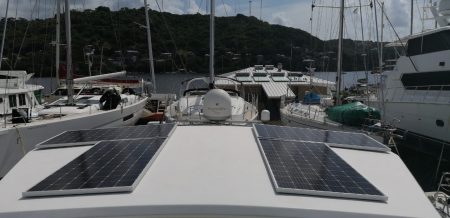
Owner was tired of having to use his Generator everyday to charge the batteries provided with his new Lagoon 421. The boat was used only for private so could be at anchor for an extended period. The following equipment was installed:
- 5 x Victron Energy 360W solar panels mounted on a stainless steel arch.
- 5 x Victron Energy Smartsolar chargers 100/30.
- 1 x Victron Energy Quattro inverter charger 12V/5000W/120amps/230V.
- 1 x Victron Energy BMS-712 smart battery monitor.
- 1 x Victron Energy Colour Control GX.
- 4 x Victron Energy LiFePO4 300Ah smart batteries.
- 1 x Victron Energy VE.BUS BMS.
With the ample supply of energy, the high capacity inverter, and the ample solar supply the owner is able to for an unlimited amount of time using usual supplies and even able to run his air conditioning from his inverter for 3 days or more. Solar installation on Privilege 61 catamaran (2019): Skipper of this charter catamaran wanted the ability to sit at anchor in between charters without using the generator. The following was installed:
- 4 x Victron Energy 360W solar panels mounted on the cockpit hard top using discrete aluminium mounting feet.
- 4 x Victron Energy Smartsolar chargers 100/30.
Skipper is now able to sit at anchor for up to 4 days without charging the huge lead-acid battery bank which they hope to replace for Lithium soon. The Smart Solar controllers can be connected to using Bluetooth and set to pre-configured Lead/Acid 3 stage charging.
Battery installation on new Jeanneau 519 (2019)
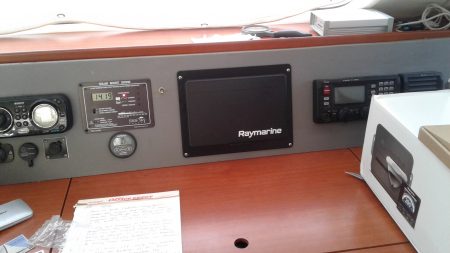
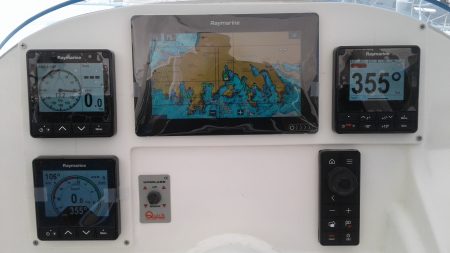
Private vessel did not want solar but wanted to maintain battery capacity for a few days without charging which was not possible with the Jeanneau supplied AGM bank. The following equipment was installed:
- 2 x Victron Energy LiFePO4 300Ah smart batteries.
- 1 x Victron Energy VE.BUS BMS.
- 1 x Victron Energy BMS-712 smart battery monitor.
- 1 x Victron Energy Colour Control GX.
The existing charger could be configured to suit LiFePO4 charging requirements along with the alternator. For vessels without a ‘smart’ alternator, Victron Energy offers options without needing to replace them. Raymarine equipment upgrade on Leopard 46: The owner was looking to install a new autopilot. After some consideration, the owner was sold on the additional benefits provided by updated Axiom displays and i70s displays. In the end, the following equipment was installed:
- 1 x Raymarine evolution autopilot kit including the ACU-400 course computer, EV-1 heading sensor, and p70s pilot head.
- 2 x Axiom 9″ displays, one in the cockpit and one inside.
- 2 x i70s instruments.
- 1 x Raymarine quantum 2 doppler radar scanner.
- 1 x RMK-9 axiom touchpad.
when installing a new pilot, the new axiom displays allow you to create tracks and have your pilot automatically follow them. You are able to use the Axiom as a pilot control ( practical from inside) and method of calibration. Updates can also be done from the display. Both displays are linked via ethernet so they do not both need connecting to the Seatalk ng backbone to share information ( including charts!). The RMK-9 control can be configured to control either display. to avoid needing adaptor plates, a new dashboard was created in starboard to mount the new instruments. This leaves quite a neat finish.
Superyacht instrument upgrade using A&T instruments processor:
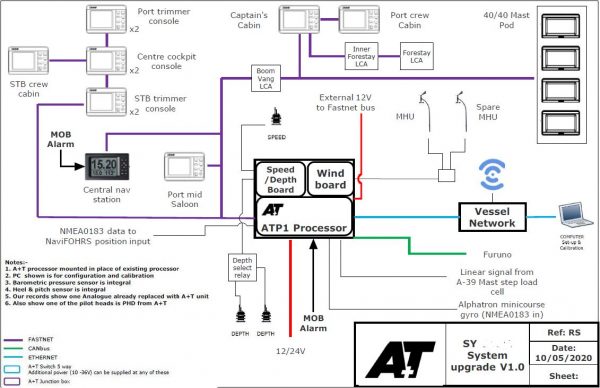
Full system drawings and design to integrate existing electronics into new A+T ATP1 using existing Fastnet cabling in place.
Rigging Installation
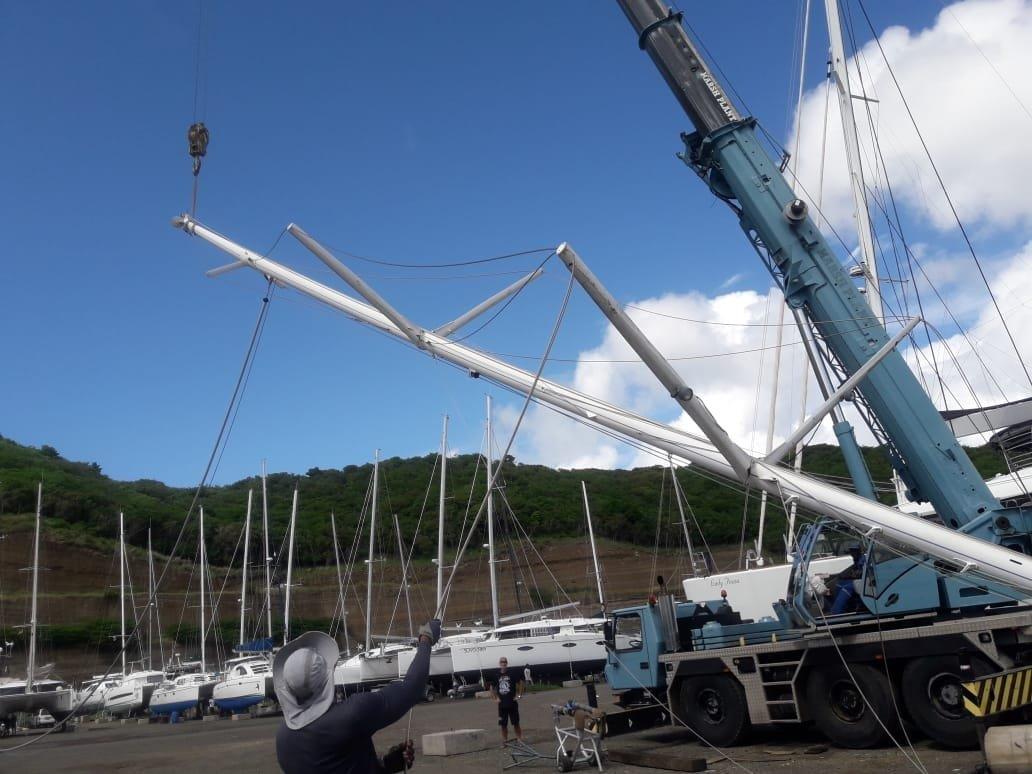
Standing Rigging
Standing rigging consists of the fixed lines and cables that support the mast and keep it upright. Key components include:
Shrouds: These are the cables running from the mast to the sides of the yacht, providing lateral support.
Stays: These are the cables that run from the mast to the bow (forestay) and stern (backstay), providing forward and aft support.
Spreaders: These are horizontal struts that extend from the mast, helping to distribute the load on the shrouds.
Running Rigging
Running rigging refers to the ropes and lines used to control the sails and adjust their position. Key components include:
Halyards: These lines are used to hoist and lower the sails.
Sheets: These control the angle of the sails to the wind. For example, the mainsheet controls the mainsail, and the jib sheet controls the jib.
Vangs and Kicking Straps: These control the angle of the boom to the mast and prevent it from lifting.
Outhauls: These adjust the tension along the foot of the sail.
Downhauls or Cunninghams: These adjust the tension along the luff (leading edge) of the sail.
Yacht Rigging Configurations

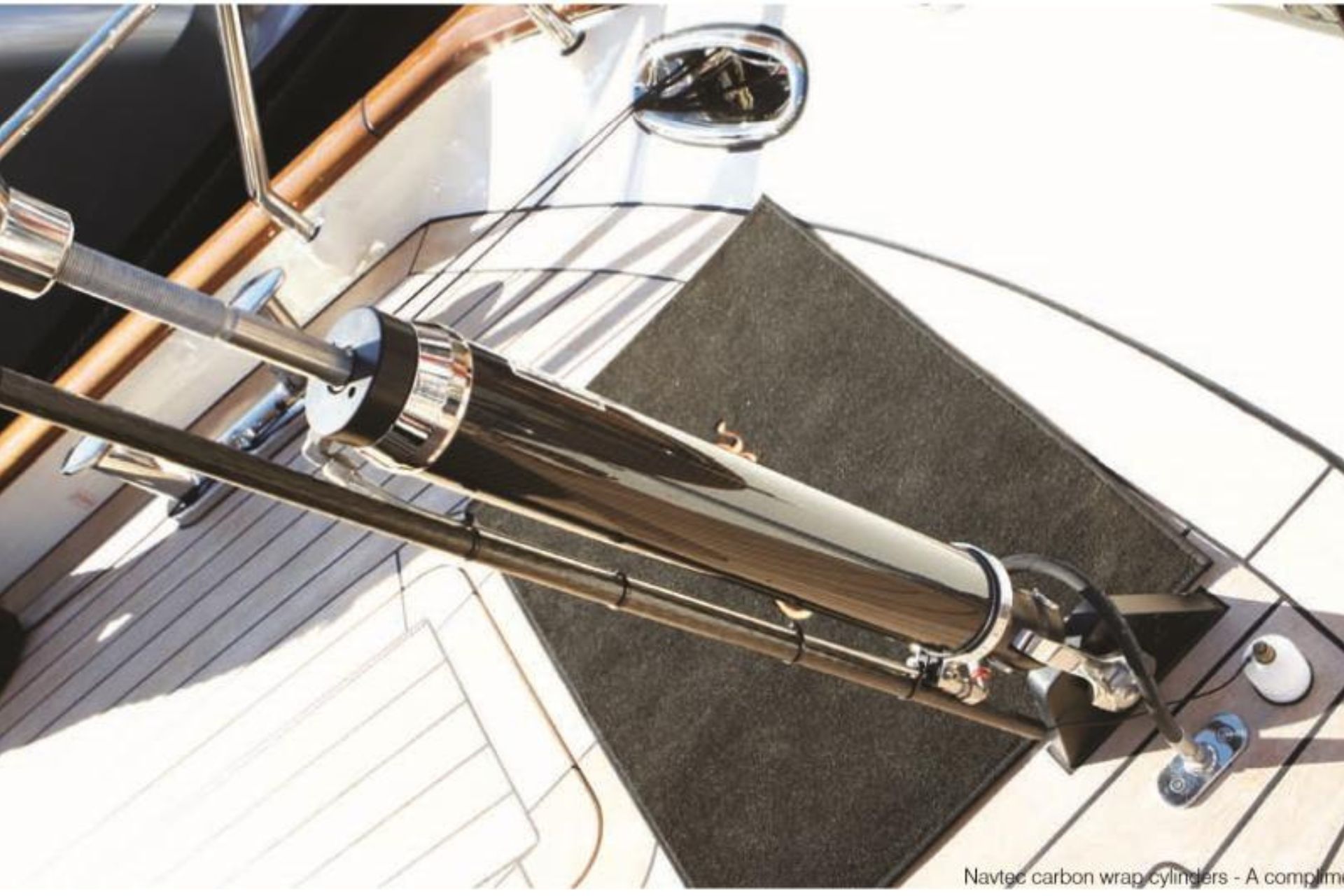
Sloop Rig: A single mast with a mainsail and a single headsail (jib or genoa). This is the most common rig for cruising and racing yachts.
Cutter Rig: Similar to a sloop but with two headsails – a jib and a staysail – for better balance and versatility.
Ketch Rig: Two masts; the main mast is taller, and the mizzen mast is shorter and located aft of the main mast.
Yawl Rig: Similar to a ketch, but the mizzen mast is located behind the rudder post, typically smaller and mainly used for balance.
Schooner Rig: Two or more masts, with the foremast shorter or equal in height to the mainmast.
Yacht rigging diagram:
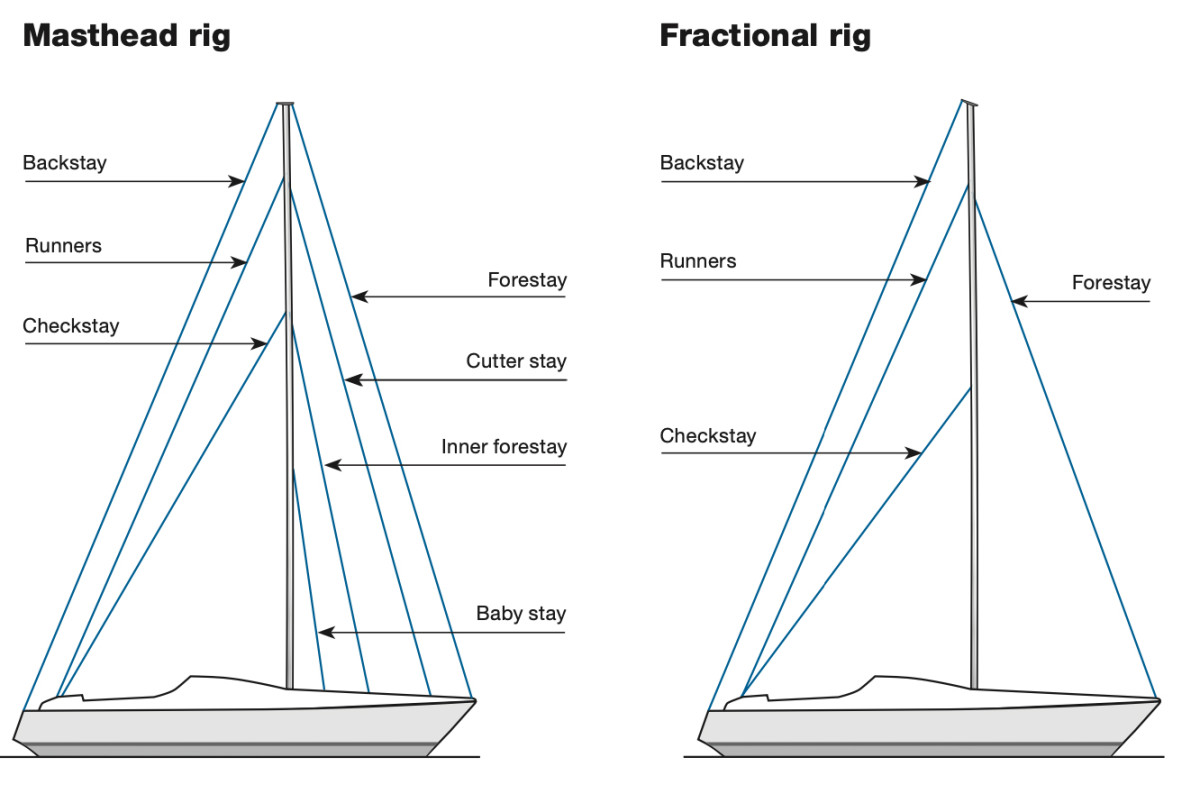
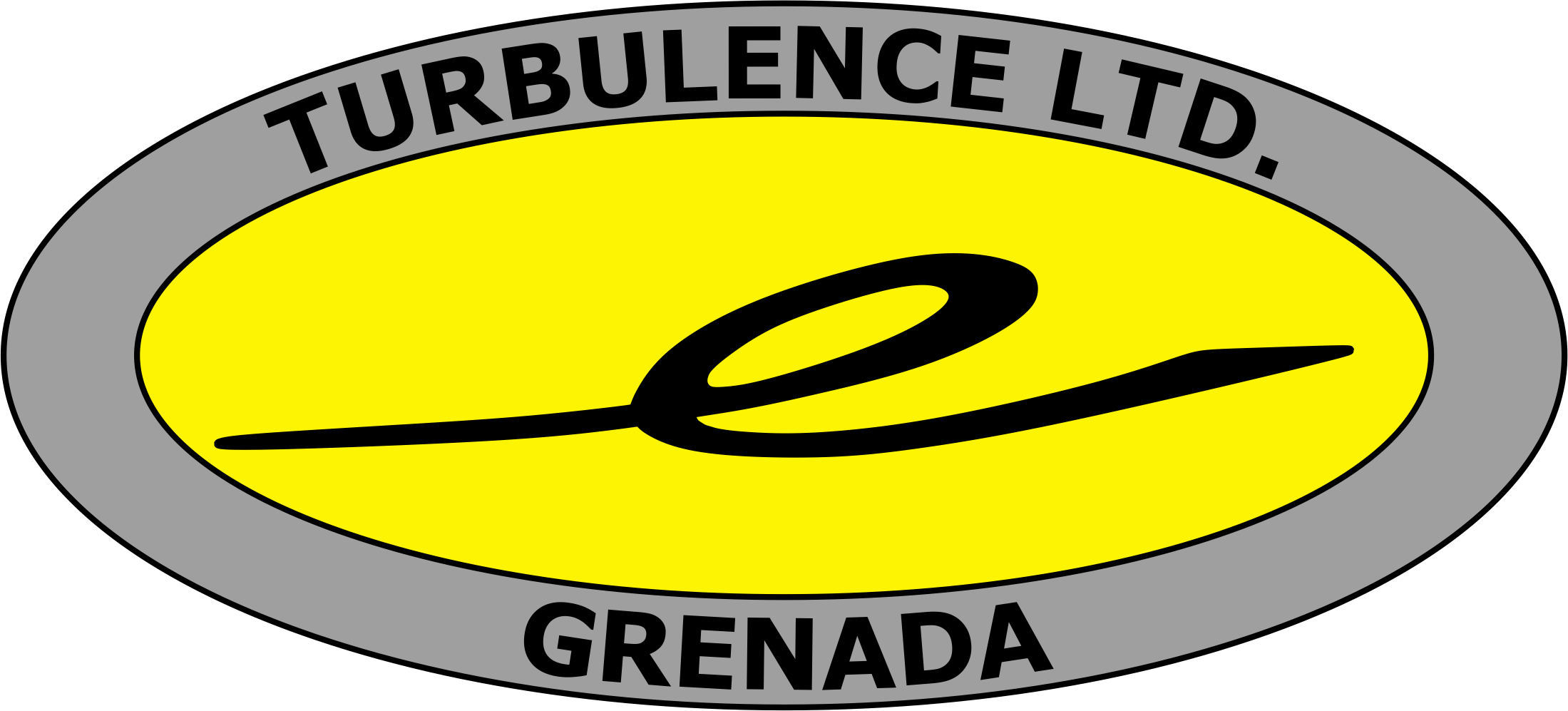
Turbulence Ltd., Grenada: Your one-stop shop for yacht maintenance – rigging, canvas, sails, electronics & hydraulics. Keeping your yacht performing at its best.
Our Locations
-
Clarkes Court Boatyard & Marina
Woburn St. George Grenada, W.I. (473) 439 4495 -
Clarkes Court Bay
North Sails Loft
St. David Grenada
W.I.
(473) 404 4818 -
Spice Island Marine
Prickly Bay St. George Grenada, W.I.
(473) 439 4495 -
Grenada Marine
St. David Grenada,
W.I (473) 439 4495
Copyright 2024 ©Copyright Turbulence Ltd. ~ Spice Island Marine, Prickly Bay, St. George ~ Grenada, W.I.